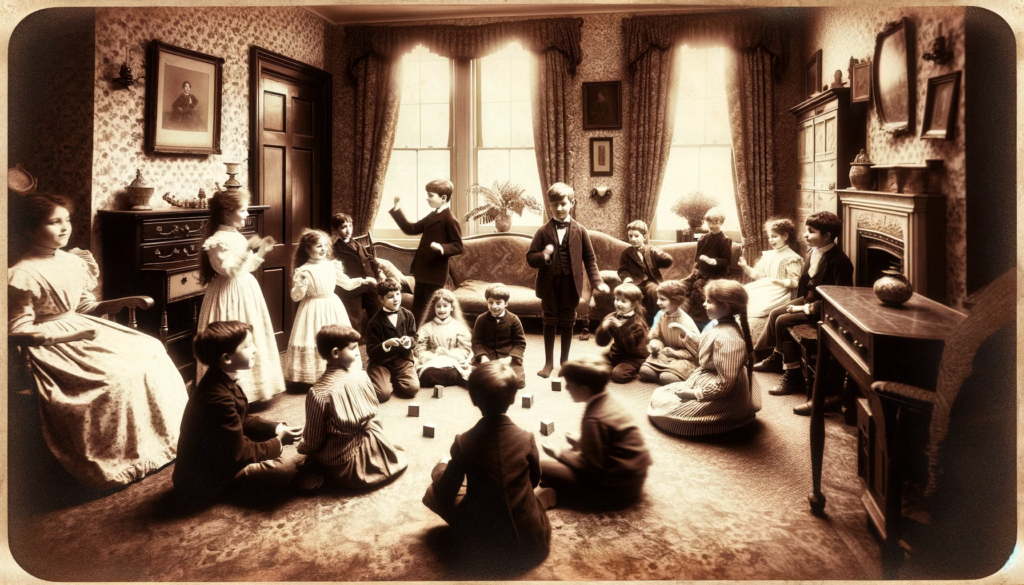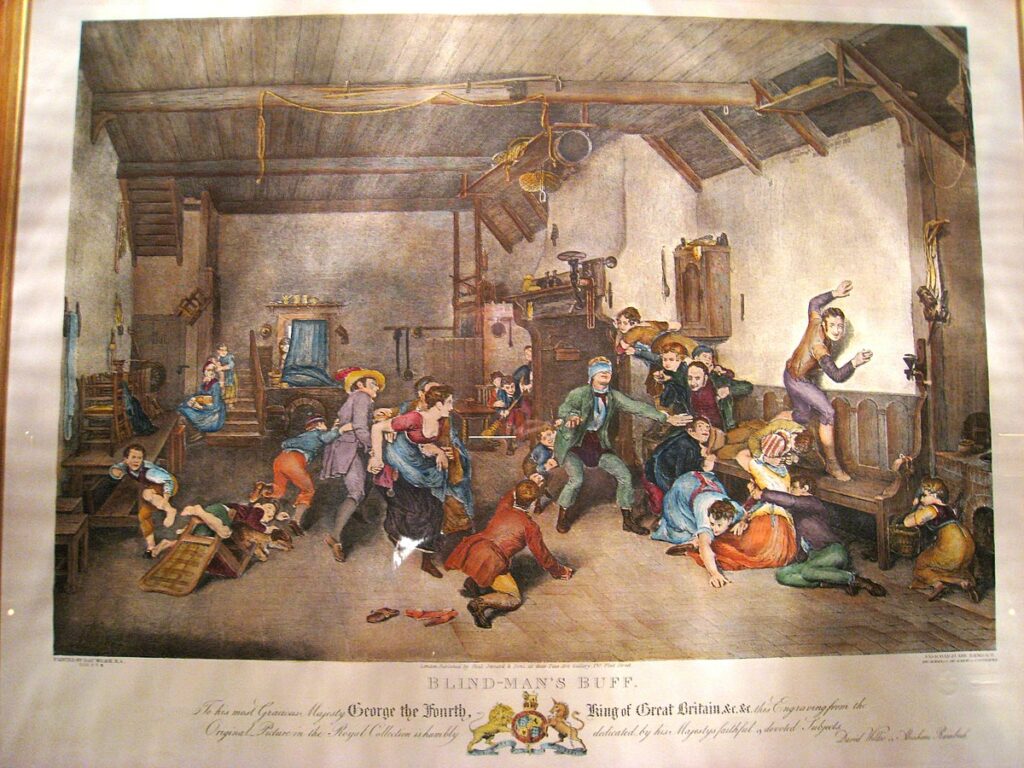For wealthy adults and children in Victorian times, there was a lot more leisure time than there was for the poor. Without the modern forms of entertainment we have today such as video games, Netflix or online shopping the Victorians had to invent simple games to pass the time and stave off boredom. Over the course of the era, several Victorian parlor games grew in popularity.
Affluent parents did not want their children playing outside in the wet English weather so the games had to be simple and suitable to playing indoors.
Below is a list of well known Victorian parlor games that many families will still play today especially during Christmas or family get togethers.

Popular Victorian Parlor Games
Charades
Charades was a very popular game for the Victorians as it did not require any equipment and was well understood by all guests.
Literary charades came first, invented by the French in the 18th Century. Acting charades appeared early in the 19th Century, again originating in France. It was then imported as a parlor game to Victorian England by the aristocracy and became the most popular form of the game.
In charades you can be split in to two or more teams. To begin with you would write down some well known activities, book titles, plays, objects or places and put them into a hat.
In the modern version of the game we might use movie titles or well known childrens tv shows. One person would then pick a piece of paper from the hat and act out what is written down by the use of mime. They must not speak.
The other players then have to guess what the person is acting out. If they guess correctly they win a point for their team.
Blindman’s Bluff

In Blindman’s Bluff, one player is blindfolded while all other guests hide around the room. The traditional name of the game is ‘blind man’s buff’ But both names are commonly used. In the traditional name, the word ‘buff’ is used in its older, original sense of being a ‘small push’.
To start, the blindfolded person is spun around several times to disorientate her. The blindfolded person must attempt to catch someone. When they capture a player they have to guess the name of the person they have caught.
If they get it right then the captured player takes the blindfold and play continues. If the blindman is unable to identify who they have captured the person is freed and play continues.
To make play more interesting players may call out to the blindfolded person to attract her attention.
Pass the Slipper
In Victorian times a slipper would often have been used for this game – however any small inanimate object would suffice. This is one that poor Victorian children could play too, particularly later in the era when more free time became available.
With this game, one player stands in the centre of a circle formed by the other players. The player in the middle must close her eyes and as she does so the object is passed from player to player behind their backs.
When the person in the middle opens her eyes, the passing of the slipper immediately stops and the player must guess who holds the slipper. If she is correct, they change places, otherwise the player closes her eyes again and play continues.
Forfeits
One player is assigned to be the judge and leaves the room. Each of the other guests must place an object into a box or hat. The objects have to belong to the person e.g. a handkerchief, a watch or a ring.
The judge then re-enters the room and picks an item out from the box. When the judge picks out an object the person must identify themselves and the judge will assign to them a forfeit.
Common forfeits might be to do a dance, sing a song. perform a tongue twister or stand on one leg for a minute.
Lookabout
The host shows everyone a little knick-knack in the room, it could be a matchbox, an ornament or something similar. All the guests are then asked to leave the room while the host hides it. When the players return, everyone is to look for the item until they spot it.
They are then to sit down. The last one to find it is the loser and must hide another item.
The Sculptor
In this parlor game, all the players must stand as still as a statue. The host will then move around the different players in the game and move them into different positions.
If the players laugh or move they are out of the game. The last person to move or laugh is the winner.
Kim’s Game
A player would put different small objects on to a tray or plate. All the other players would then look at the plate and memorise what is on there.
He then would cover the plate with a cloth and remove one of the objects. When he removes the cloth the first player to call out the item that is missing from the tray is the winner.
Dictionary
A player would look in the dictionary for a word. They would then write down the definition of the word and also 2 or 3 false definitions of the word. It is then up to the other players to guess which definition is correct and which is not.
This is quite a good educational game for children as it can help them increase their vocabulary and learn new words.